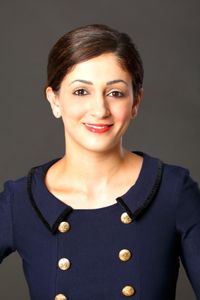Mako Explores the Dynamics of State Formation and Identity

Shamiran Mako, Assistant Professor of International Relations and Political Science at Boston University’s Pardee School of Global Studies, delves into the complexities of consociationalism in her latest research publication. Titled “Afterword: Consociationalism and the State: Situating Lebanon and Iraq in a Global Perspective,” Mako’s article serves as a reflective piece on the special issue focusing on Lebanon and Iraq’s consociational systems.
In her afterword, Mako synthesizes the insights gleaned from the special issue’s articles, shedding light on their significance within the broader landscape of consociationalism studies. She emphasizes the intricate relationship between the state, consociationalism, and identity construction, highlighting the nuances of state formation and the adaptability of consociational states. Mako advocates for a deeper engagement with the agency of actors within consociational systems and encourages cross-regional comparisons, particularly from the Global South, to enrich our understanding of power-sharing dynamics.
Mako’s expertise in international relations and comparative politics, particularly focused on the Middle East, underscores the importance of her contributions. Her research addresses critical issues such as ethnic politics, post-conflict statebuilding, and governance in divided societies, offering valuable insights into complex socio-political contexts.
The full article can be accessed here.
Shamiran Mako is an assistant professor of international relations at the Pardee School of Global Studies at Boston University. She is also a member of the Graduate Faculty at the Political Science Department at Boston University. Her research explores the historical and contemporary drivers of inter and intra-state conflicts that produce weak and fragile states across the MENA region. She is the author of After the Uprisings: Progress and Stagnation in the Middle East and North Africa, with Valentine Moghadam. Read more about Professor Mako on her faculty profile.